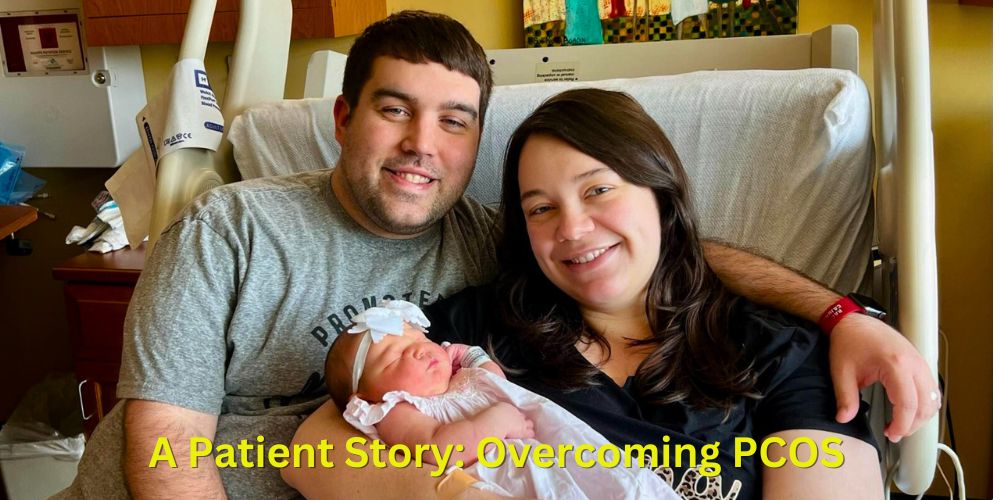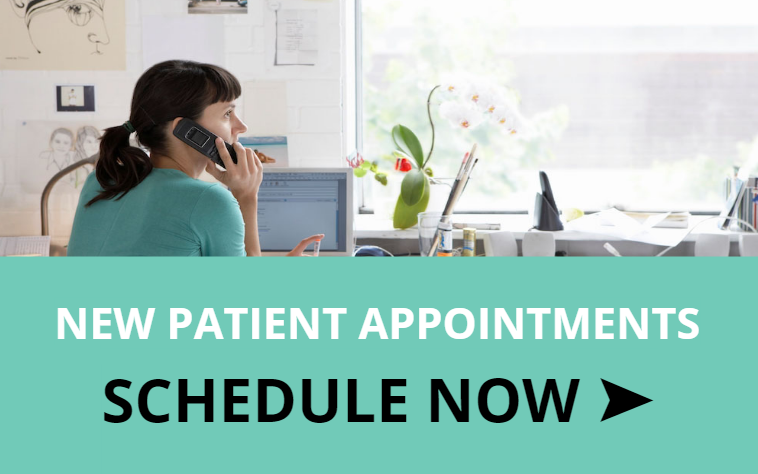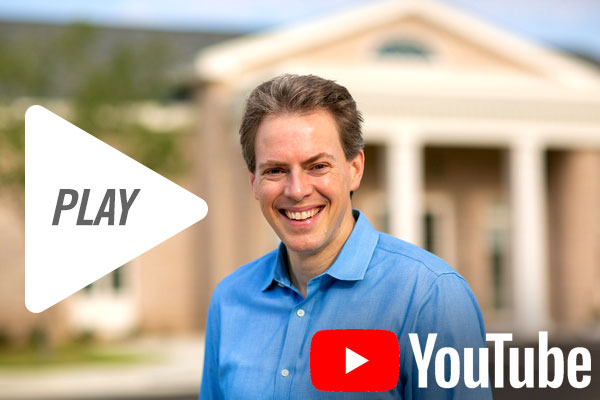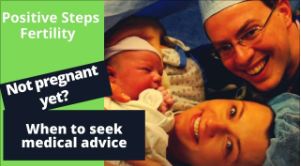PCOS is really just hard emotionally. It’s hard for an adolescent to go through, but it’s even harder for an adult trying to get pregnant.
My name is Natalie Thibodeaux, and this is my husband, Alex. We’re from Opelousas, Louisiana, a small town about three hours from Positive Steps Fertility’s Shreveport clinic. I’m a high school business and computer teacher, and Alex works as a Medicaid analyst for the state. We’ve been together for over nine years and married since 2018. In 2020, after a few years of enjoying married life, we were ready to start building our family.
Realizing Something Was Wrong
When I came off birth control and we began trying to conceive, I noticed something wasn’t right. I was using ovulation test strips but never saw a clear positive. At first, I thought I wasn’t reading them correctly or that something was wrong with the test strips themselves. After joining online groups and researching more about fertility, I began to suspect I had PCOS. My cycles were irregular and heavy, and I never ovulated regularly.
For over a year, we tried on our own, following every suggestion we could find. My OB at the time didn’t seem too concerned. Instead of investigating further, he put me on Metformin and told me repeatedly, “You just need to lose weight.” So I did. I lost 25 pounds, took supplements, changed my diet, and still, we weren’t getting pregnant. When I went back to the same OB, hoping for answers, he told me again, “You need to lose more weight.”
That’s when I realized something had to change. We had spent over a year trying and still had no answers. I switched to another OB, who finally confirmed my suspicion—I had PCOS. It was both a relief and a challenge. At least we knew what was wrong, but it also meant the road ahead might be longer than we had hoped.
The Emotional Toll of PCOS Symptoms
Dealing with PCOS was incredibly difficult, both physically and emotionally. No matter what I did—whether it was losing weight, changing my diet, or trying new supplements—nothing seemed to work. PCOS made it nearly impossible to ovulate regularly, which meant that month after month, we were trying without a chance of success. Watching my friends and family get pregnant so easily while we struggled was heartbreaking. I felt like I was doing everything wrong, even though I knew deep down that it wasn’t my fault.
Alex and I had to rely on each other to get through those difficult times. For him, it was hard watching me go through the emotional ups and downs without being able to fix the problem. He wanted to be there for me, but there wasn’t much he could do except offer his support.
Finding Answers at Positive Steps Fertility
After more than a year of frustration and disappointment, we decided it was time to seek specialized help. We found Positive Steps Fertility through a Facebook group, and it felt like a blessing from the very first consultation. Compared to other clinics, Positive Steps was much more affordable, but more importantly, they truly cared about us. They weren’t just pushing us through a process—they wanted to understand our journey and create a plan that was tailored specifically for us.
From the moment we walked through the doors, we felt welcomed. The entire team at the Positive Steps Shreveport Clinic treated us like family. They made us feel comfortable, offered us snacks and drinks, and, most importantly, listened to our story. Dr. Parry and his team took the time to understand what we had already been through and developed a personalized treatment plan based on our specific needs.
Navigating PCOS Diagnosis and the IVF Journey
PCOS had been a major obstacle in our fertility journey. It made it difficult for me to ovulate regularly, lose weight, and maintain a healthy hormone balance. But at Positive Steps, Dr. Parry approached my case differently. He didn’t focus on weight loss or give me the same generic advice I had been hearing for years. Instead, he used his expertise and the clinic’s unique diagnostic tool, The Parryscope, to get a clearer picture of what was really going on.
The Parryscope is an incredibly informative tool that allowed Dr. Parry to examine my uterus and tubes to check for abnormalities like bacteria, scar tissue, or blockages that could be preventing pregnancy. This was a critical step in our journey because we discovered that one of my fallopian tubes had scar tissue, which may have been the reason our previous IUIs failed. This level of detail and care was something we hadn’t experienced at other clinics.
In addition to addressing my PCOS, Dr. Parry also caught something that other doctors had missed: Alex’s blood pressure medication could have been blocking embryo fertilization. That was a huge revelation for us, and it felt like we were finally getting the answers we had been searching for.
The IVF Process and Egg Retrieval
By early 2023, we decided to move forward with IVF. I remember feeling both nervous and excited. IVF felt like our best chance, but the process itself was daunting. Dr. Parry was phenomenal throughout the entire process. During one of our monitoring visits, he predicted the exact dose of follicle-stimulating medication I needed just by looking at my ultrasound—before even seeing my blood work. His expertise reassured us that we were in the right hands.
In May 2023, we had our egg retrieval. It was an emotional day, filled with both hope and fear. Before the procedure, the nurse told me they would write the number of eggs retrieved on my hand when I woke up. When I opened my eyes after the procedure, I immediately looked at my hand and saw the number 39. I was in disbelief. We had retrieved 39 eggs, far more than I had expected. After everything we had been through, it felt like a miracle.
Dealing with OHSS
Of course, nothing about our journey was without its challenges. After the egg retrieval, I developed Ovarian Hyperstimulation Syndrome (OHSS), a common complication for women with PCOS who retrieve a large number of eggs. My body retained a lot of extra fluid, and I became nauseous to the point where I couldn’t even lie down. A few days later, I had to return to Positive Steps, where they drained the excess fluid. It was a difficult experience, but I knew it was worth it.
Even though OHSS was tough, the team at Positive Steps took excellent care of me. They monitored my recovery closely, and the entire time, we felt like they genuinely cared about our well-being.
The Embryo Transfer and Finally, a Positive Test
After recovering from OHSS, we anxiously awaited news about how many embryos had been fertilized. Out of the 39 eggs retrieved, 26 were fertilized, but by day five, we were told only two embryos had made it. I was devastated. After everything, it felt like a huge setback. But the team at Positive Steps reassured us that many embryos don’t reach maturity until days six or seven. Sure enough, by day seven, we had ten more embryos. In total, we had 12 fertilized embryos, and it was an incredible relief.
We decided to do genetic testing (PGT) on eight of the embryos, and the results were even better than we could have hoped. Seven of the eight embryos were genetically normal, giving us a much higher chance of success.
In November 2023, we did our first embryo transfer just before Thanksgiving. The preparation process was intense, with daily progesterone injections, but it was all worth it. I was so anxious that I took a pregnancy test at home five days after the transfer, even though the clinic had advised me to wait. The line was faint, but it was there—I was pregnant.
The joy we felt in that moment was indescribable. After years of trying, we finally had a positive result. It was one of the happiest moments of our lives.
Reflections and Advice
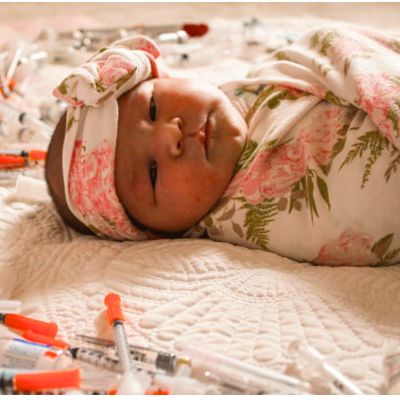
Our fertility journey wasn’t easy, but it brought us closer together. There were many times when I wanted to give up, especially after failed IUIs and the physical toll of PCOS. But through it all, Alex and I stayed strong for each other. We reminded ourselves of why we were doing this and kept our eyes on the ultimate goal—starting a family.
If I could offer advice to anyone just beginning their fertility journey, it would be this: advocate for yourself. Don’t settle for a doctor who isn’t listening to you or addressing your concerns. You know your body better than anyone, and it’s important to find a medical team that will work with you to create a plan that fits your needs.
For those struggling with PCOS or fertility challenges, know that you’re not alone. There are so many others who have been through similar struggles, and there is always hope. Stay positive, rely on your support system, and remember that you are more than your fertility journey.
Gratitude for Positive Steps Fertility
Choosing Positive Steps Fertility was the best decision we ever made. From the beginning, Dr. Parry and his team treated us like family. They tailored our treatment plan to our specific needs and weren’t just in it for the money—they genuinely wanted to help us start our family.
Now, with our baby girl in our arms, we can reflect on our journey with gratitude. All the struggles, the setbacks, and the challenges were worth it. Positive Steps gave us the gift of parenthood, and for that, we will be forever thankful.
